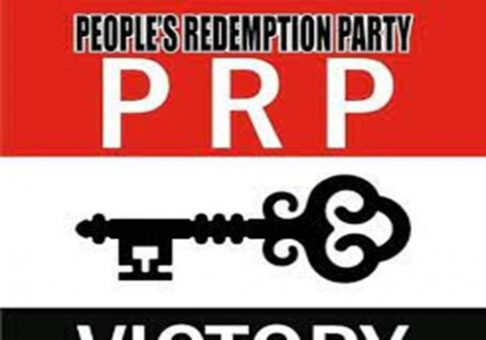The Peoples Redemption Party (PRP) has strongly criticized the decision by the governors of Bauchi, Kano, Katsina, and Kebbi states to close schools during the holy month of Ramadan, warning that it jeopardizes the future of millions of children.
In a statement released on Friday, the party’s National Publicity Secretary, Comrade Muhammed Ishaq, expressed “profound disappointment and concern” over what the PRP described as an unnecessary disruption to the academic calendar.
“This decision disrupts the educational programme of our children and undermines their right to quality education,” the statement read.
The PRP particularly questioned why governors with advanced degrees would support such a move, highlighting Katsina State Governor, Dikko Radda, who holds a PhD in Agriculture and Rural Sociology, and Kebbi State Governor, Nasir Idris, who has a PhD in Education.
“How can a state led by such a learned individual decide that the best way to move forward is to lock the doors of learning during a time of fasting?” the party asked, calling the decision a contradiction that casts doubt on the governors’ commitment to progress.
The party further pointed out that these same leaders attended school without disruption during Ramadan in their youth. “Historically, during their own time in secondary school, these leaders experienced uninterrupted learning during Ramadan,” the PRP noted, arguing that shutting down schools now is both inconsistent and damaging.
According to the PRP, states like Bauchi, Kano, Katsina, and Kebbi already suffer from alarmingly high out-of-school rates, averaging around 44%—well above the national average. The party warned that further school closures would worsen this crisis, particularly given the region’s poor performance in national examinations.
“Closing schools during Ramadan only deepens this crisis and threatens the educational advancement of millions of students,” the statement added.
While acknowledging the significance of Ramadan, the PRP emphasized that education and religious observance can coexist, citing examples from Islamic nations.
“Many Islamic nations, such as Saudi Arabia and the United Arab Emirates, manage to balance educational needs with religious observance during this holy month by adapting school schedules rather than closing them entirely,” the party argued.
The PRP urged the governors to reconsider their decision and engage with stakeholders to find a more balanced approach.
“They must engage constructively with parents, educators, and civil society organizations to reassess their decision and explore options that accommodate the needs of Muslim students while ensuring that education continues,” the statement urged.
In a final appeal, the party demanded an immediate reversal of the school closures and a renewed commitment to policies that protect education.
“It is time for the governors to stop playing politics with the futures of our children and instead commit to creating pathways for success through uninterrupted education,” the statement concluded.

